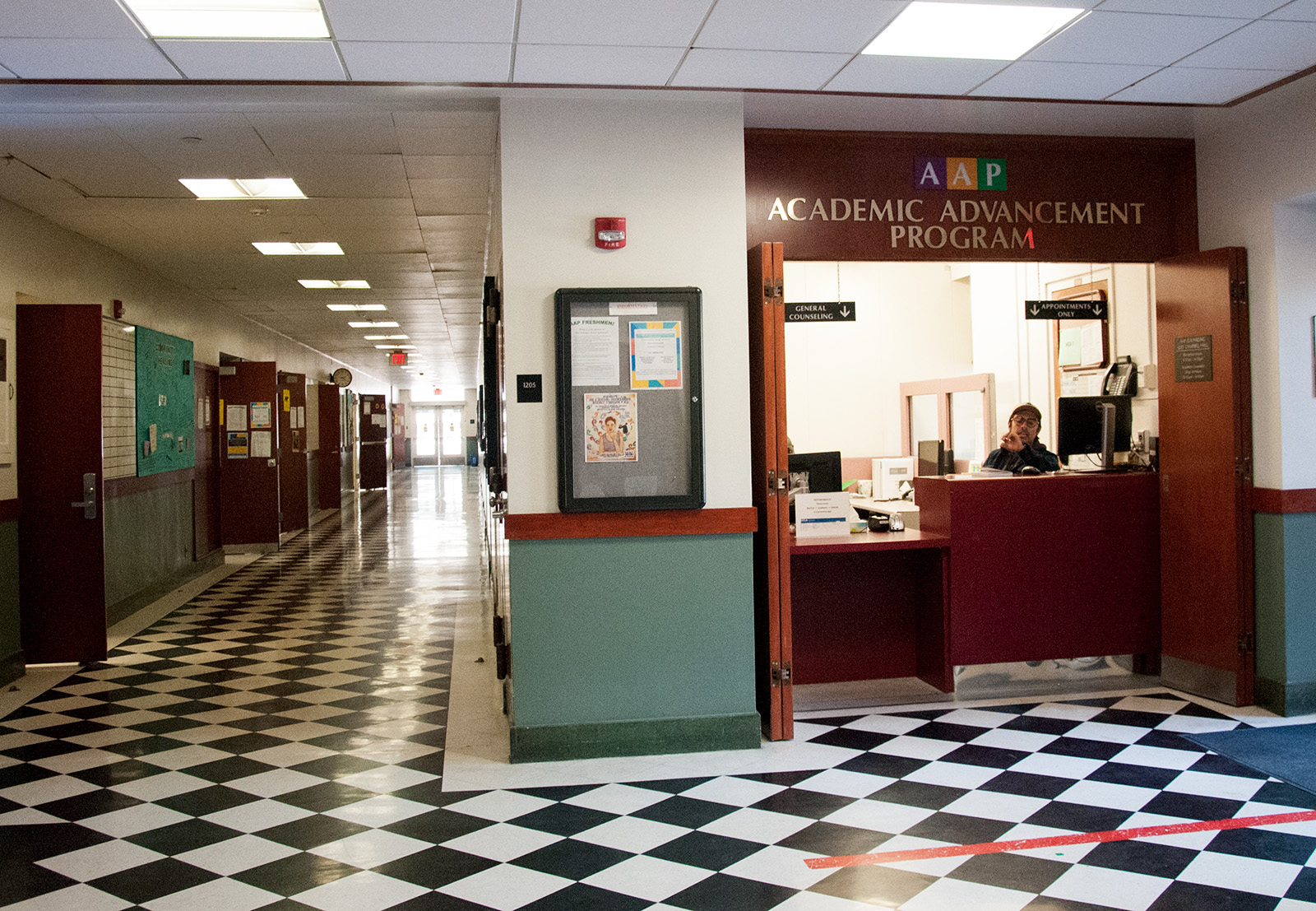Academic Advancement Program adds services with increased funds

The Academic Advancement Program has used funding from the Social Justice Referendum to hire more peer learning facilitators and provide them with additional work hours to attend class lectures and hold midterm and final review sessions. (Liz Ketcham/Daily Bruin)
By Grace Morgan
May 15, 2018 12:00 a.m.
A peer tutoring program has expanded its services with funds from increased student fees this academic year.
The Academic Advancement Program, which provides peer learning and academic support to students, received additional funding from the Social Justice Referendum. Student voters passed the referendum in the spring 2016 undergraduate student government election, adding $140,000 to AAP’s $814,000 total budget this year, said Charles Alexander, AAP director and associate vice provost for student diversity.
The Social Justice Referendum increased undergraduate student fees by $24.99 per quarter to fund a variety of retention and outreach programs, including groups affiliated with the Community Programs Office and the Academic Affairs Commission.
In AAP’s peer learning program, students who have successfully taken a particular course are hired to lead a small group tutoring session for that course. The program, which offers sessions for 104 courses and employs 127 peer learning facilitators, aims to help students think critically and study effectively while mastering course materials, Alexander said.
Alexander said the program used the additional funds to add more peer learning sessions and hire additional peer learning facilitators. The program was also able to offer peer learning facilitators additional work hours to attend lectures, visit professors’ office hours and hold midterm and final review sessions.
Peer learning facilitators sometimes do not know class material because they took a professor different from the one teaching the class currently, said Lonnell Edwards, a third-year sociology student. He added he thinks offering tutors additional work hours to attend lectures will greatly increase the peer learning sessions’ effectiveness by making sure the material being covered in the sessions will be on the exams.
“Just this past quarter, I attended a (peer learning session), but because the material the (peer learning facilitator) was taught from the class was different, she was no help in engaging with us in the material,” he said.
The program also used the funds to provide additional peer learning facilitator trainings, hire more undergraduate office assistants and increase the number of peer learning sessions for upper division and transfer students, Alexander said.
He added AAP will now be providing at least 10 upper division peer learning sessions, including for Biochemistry 153A, Mathematics 115A and Linguistics 120A/B. He added that AAP plans to expand services for transfer students in science, technology, engineering and mathematics disciplines and provide leadership and professional development trainings for peer learning facilitators.
Alexander said extra funding from the referendum has helped AAP expand its services and increase its staff, despite increased costs from minimum wage increases.
Alexander added that expanding AAP will help the program better accommodate the increasing student population. In the winter quarter of 2017, there were 120 facilitators to serve 1,752 AAP students. In the past quarter, there were 127 facilitators to serve 1,906 AAP students, maintaining a ratio of about one facilitator for every 15 students.
Some students who have used AAP’s resources said they think funding should be allocated to increase student awareness because they feel programming is useful, but not well-advertised, limiting the amount of students the program’s services are able to reach.
“It would be helpful (for) AAP to have a detailed workshop to discuss … the resources available especially to transfer students, non-traditional, students with dependents and veterans,” Edwards said.
Other students said they think the funds should be used to make AAP more efficient and accessible.
Christine Tu, a first-year economics student, said although she is enrolled in AAP, she has had difficulty using the links on MyUCLA to sign up for a tutoring session.
“The links never work,” she said. “I feel that is an inefficiency that needs to change.”


